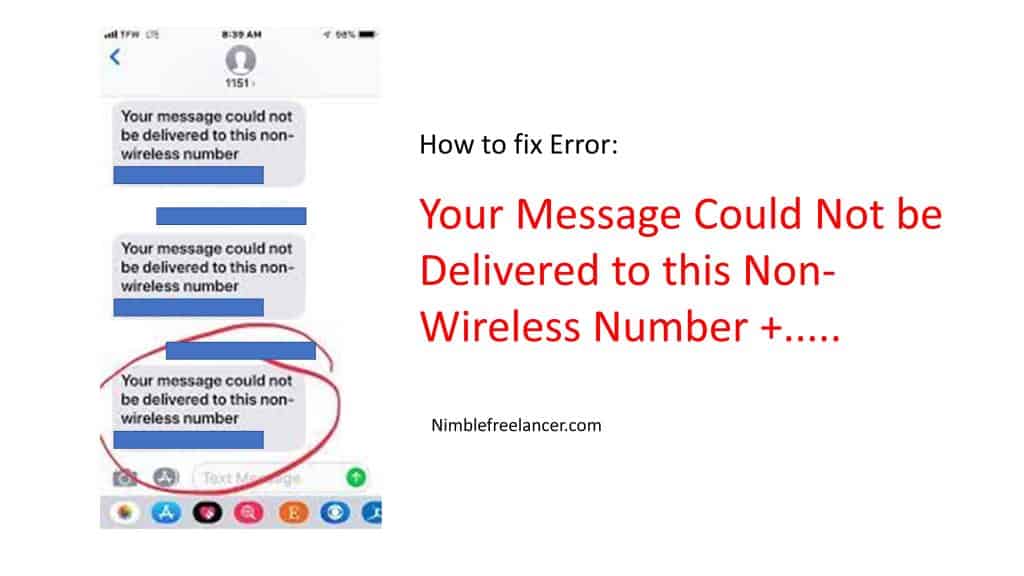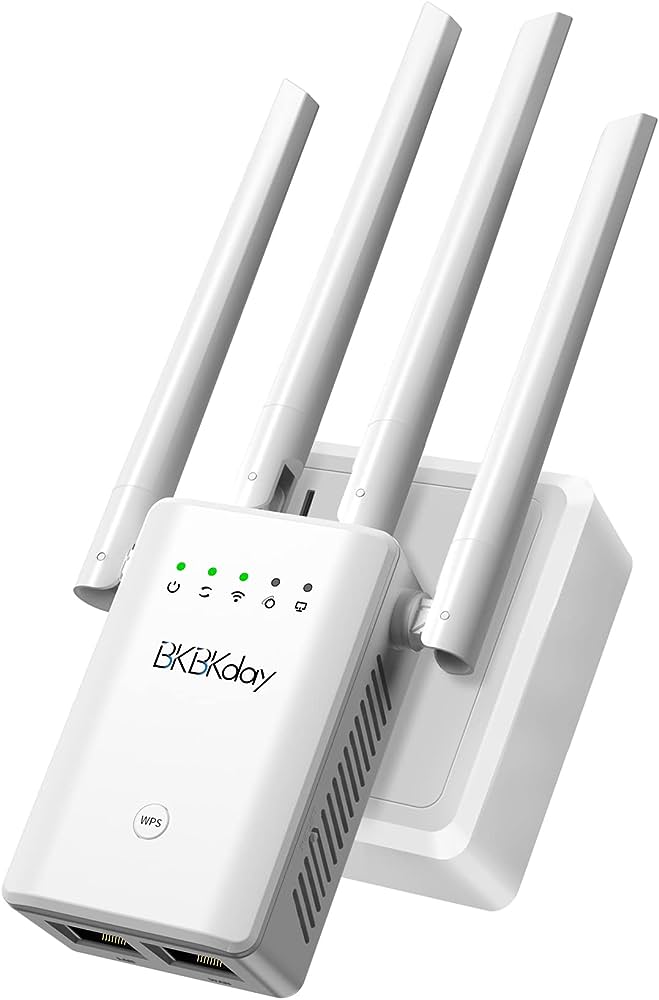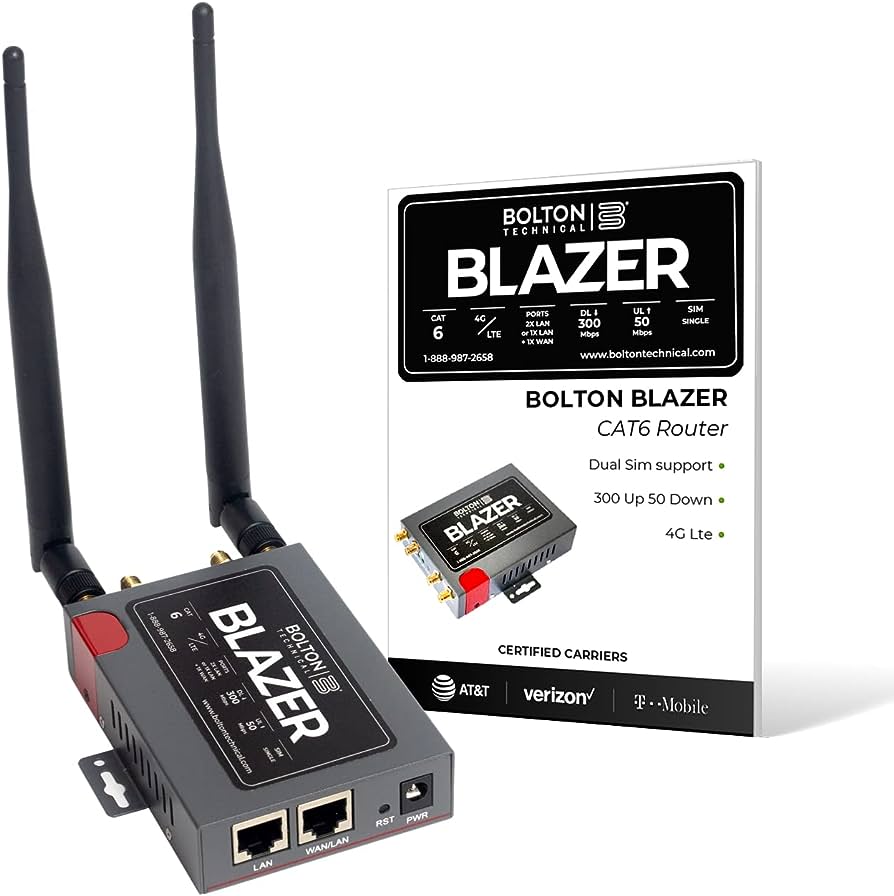What Is A Non-Wireless Number
Welcome to the world of phone numbers! Have you ever wondered what a non-wireless number is? Well, you’re in the right place!
So, what exactly is a non-wireless number? Essentially, it’s a phone number that isn’t associated with a mobile device or a wireless service.
Maybe you’re thinking, “Why does it matter?” Great question! Non-wireless numbers are often used for landline phones, fax machines, or other devices that require a physical connection. Let’s dive deeper into the world of non-wireless numbers and discover why they’re still relevant in today’s wireless world.
A non-wireless number refers to a phone number that is not associated with cellular or wireless communication. It is typically used to refer to landline telephone numbers. These numbers are connected through physical telephone lines, allowing users to make calls without relying on wireless technology. Non-wireless numbers are commonly used in homes, offices, and other fixed locations. They provide stable, reliable communication services. Unlike wireless numbers, non-wireless numbers are not portable and cannot be used outside of the designated location.


What is a Non-Wireless Number: Understanding the Basics
In today’s modern world, where wireless communication dominates, it’s important to understand the concept of non-wireless numbers. While most of us are familiar with mobile phone numbers that are wireless, there are still instances where non-wireless numbers play a crucial role. In this article, we will explore what exactly a non-wireless number is, how it differs from a wireless number, and why it is still relevant in certain situations.
The Definition of a Non-Wireless Number
A non-wireless number refers to a telephone number that is not associated with wireless or mobile phone services. It is typically assigned to a landline or wired phone service, where the connection is established through physical lines. These numbers are primarily used for residential, business, or institutional purposes, and are often tied to a specific location.
Non-wireless numbers are assigned by telecommunications companies and are connected via traditional copper, fiber optic, or other physical cables. They rely on a wired infrastructure for communication and are not dependent on cellular networks or wireless technologies.
While the use of non-wireless numbers has declined over the years due to the widespread adoption of mobile phones, they still serve a purpose in situations where a reliable and stable communication channel is required, such as in businesses, offices, and homes.
How Non-Wireless Numbers Differ from Wireless Numbers
The main difference between non-wireless numbers and wireless numbers lies in the technology used for communication. Non-wireless numbers are connected through physical cables, whereas wireless numbers rely on cellular networks and wireless technologies.
Wireless numbers, also known as mobile phone numbers, offer the flexibility of communication on the go. They allow users to make and receive calls from anywhere within the coverage area of their cellular network. This portability and convenience have made mobile phones the primary mode of communication for many people.
On the other hand, non-wireless numbers are tied to a specific location, usually associated with a landline or wired phone service. They cannot be easily moved or transferred, as they are linked to the physical infrastructure of the telephone service provider. Non-wireless numbers are typically associated with stability, reliability, and higher call quality compared to wireless numbers.
The Relevance of Non-Wireless Numbers Today
While mobile phones have become ubiquitous, non-wireless numbers still hold importance in various scenarios. Here are a few reasons why non-wireless numbers continue to be relevant:
- Businesses and Offices: Many businesses and offices rely on non-wireless numbers as their primary means of communication. These numbers provide a stable and reliable connection, which is crucial for day-to-day operations, customer support, and inter-office communication.
- Homes and Landlines: Some individuals prefer to have a landline at home for various reasons, such as better call quality, emergency situations, or as a backup communication option. Non-wireless numbers offer a stable connection and do not rely on the availability of cellular networks.
- Internet and Broadband Services: Non-wireless numbers are often used to establish internet and broadband connections. These connections require a stable and reliable infrastructure, ensuring consistent internet access and speeds.
In conclusion, while wireless numbers dominate the communication landscape, non-wireless numbers still play a significant role in specific situations. They offer stability, reliability, and higher call quality, making them essential for businesses, homes, and institutions. Understanding the differences between non-wireless and wireless numbers can help us make informed decisions about our communication needs.
Benefits of Using Non-Wireless Numbers
Using non-wireless numbers can bring various benefits, depending on the specific context and requirements. Let’s explore some of the advantages of utilizing non-wireless numbers:
Enhanced Call Quality
Non-wireless numbers are often known for offering superior call quality compared to wireless numbers. This is because the connection is established through physical cables and does not rely on cellular networks, which can sometimes be affected by signal strength or environmental factors. For businesses, this means clearer calls and better communication with customers and clients.
Reliability and Stability
Non-wireless numbers are highly reliable and stable, providing consistent communication services. They are not impacted by issues such as network congestion or limited coverage areas, which can sometimes be a concern with wireless numbers. This reliability is particularly important for businesses and organizations that require uninterrupted communication for their day-to-day operations.
Separation of Personal and Business Lines
Having a non-wireless number allows for clear separation between personal and business communication. This is especially beneficial for individuals who run their own businesses. By having a dedicated non-wireless line for business calls, it becomes easier to manage professional communication without any interference or confusion with personal calls.
Improved Security and Privacy
Non-wireless numbers offer added security and privacy features that can be beneficial in certain situations. For example, they can provide additional protection against unwanted calls or telemarketers. Non-wireless numbers are also less susceptible to hacking or interception compared to wireless numbers, making them a preferred choice for sensitive conversations.
In summary, non-wireless numbers offer benefits such as enhanced call quality, reliability, separation of personal and business lines, and improved security and privacy. These advantages make non-wireless numbers a valuable communication option in various settings, including homes, businesses, and institutions.
Key Takeaways – What is a Non-Wireless Number?
1. A non-wireless number is a phone number that is not associated with a mobile device.
2. Non-wireless numbers are typically landline numbers connected to traditional telephone lines.
3. These numbers are often used by businesses or for home telephones.
4. Non-wireless numbers require a physical connection to a phone jack or a landline service provider.
5. Unlike wireless numbers, non-wireless numbers do not provide mobility and are confined to a specific location.
Frequently Asked Questions
Welcome to our Frequently Asked Questions page! Here, we’ll answer some common queries about non wireless numbers. Read on to find out more!
1. How can I identify a non wireless number?
Identifying a non wireless number is quite simple. Non wireless numbers are landline phone numbers that are typically associated with a physical location, rather than a mobile device. Unlike cell phone numbers, non wireless numbers are linked to a specific address and are generally used for homes, businesses, and other stationary locations. You can recognize a non wireless number by the area code and the absence of a mobile carrier identifier.
Most non wireless numbers start with the traditional area codes, such as 212 for New York City or 415 for San Francisco. Additionally, you can often hear a different dial tone or noise when you call a non wireless number, compared to a cell phone number. So, the next time you’re dialing a number and you notice a different dial tone, chances are it’s a non wireless number.
2. How are non wireless numbers different from wireless numbers?
The main difference between non wireless and wireless numbers lies in their mobility and functionality. Non wireless numbers are tied to specific addresses and are generally not portable. They are physically connected to landline phone systems and are attached to a physical location. On the other hand, wireless numbers, also known as cell phone numbers, are not linked to a specific location and provide more flexibility in terms of portability.
Wireless numbers use radio waves to connect to mobile networks, allowing calls to be made from anywhere within the network coverage area. This means that you can take your wireless number with you wherever you go, whether you move to a new city or travel to a different country. Non wireless numbers, however, are fixed to the landline infrastructure and cannot be easily moved or transferred.
3. Can non wireless numbers receive text messages?
Yes, non wireless numbers can receive text messages, but there are some limitations. While text messaging is commonly associated with cell phones, many landline providers now offer the ability to send and receive texts using non wireless numbers. This is often referred to as “landline texting.” However, it’s essential to note that not all non wireless numbers have this capability, as it depends on the specific phone service provider.
If your non wireless number supports text messaging, you can send and receive texts just like with a cell phone number. However, some features commonly available on cell phones, such as picture messaging or group messaging, may not be fully supported on non wireless numbers. It’s always best to check with your landline service provider to determine the availability and limitations of text messaging on your non wireless number.
4. Are non wireless numbers becoming obsolete?
While the use of non wireless numbers has decreased with the rise of mobile phones, they are not becoming obsolete. Non wireless numbers still serve an essential role in many homes, businesses, and public services. Certain organizations, such as government agencies, hospitals, and emergency services, heavily rely on non wireless numbers for their critical operations.
Additionally, non wireless numbers often provide more reliable connections and better call quality compared to cell phone networks, especially in remote areas or during natural disasters when cellular networks may be congested or unavailable. Therefore, non wireless numbers continue to play a vital role in the telecommunications infrastructure, ensuring consistent and accessible communication for various purposes.
5. Can non wireless numbers make international calls?
Yes, non wireless numbers can make international calls, but the process may vary depending on the landline service provider. Most landline providers offer international calling options that allow you to dial international numbers directly from your non wireless phone. However, it’s important to be aware that international calls made from non wireless numbers may incur additional charges, which can vary based on the destination and duration of the call.
To make an international call from a non wireless number, you typically need to dial an international access code, followed by the country code, area code, and the specific phone number. Your landline service provider can provide you with the necessary information and any additional instructions or requirements for making international calls. As always, it’s a good idea to check the rates and any applicable fees with your provider before making international calls from your non wireless number.


Non-Working Number (Cingular Wireless) Message 3IL08UN
Summary
A non-wireless number is simply a regular phone number that is not connected to a mobile device. It is the kind of number you would use to make and receive calls on a landline telephone. These numbers are often linked to a physical location, like a home or office.
Non-wireless numbers have been around for a long time and are still widely used today, especially in places where landlines are more common than cell phones. They are typically provided by telephone companies and are essential for staying connected with friends, family, and businesses. So, next time you hear someone talking about a non-wireless number, you’ll know exactly what they mean!




